Sorry for the bad title, but I don't know how to describe what I'm trying to do, but hopefully my explanation will make sense.
Anyway, I have 3 tables in my database at the moment; t_courses, t_users and t_enroll. t_enroll is a join table between t_courses and t_users. The relationship looks like this:
On this, I'm performing the following query:
SELECT t_courses.*, COUNT(t_enroll.iduser) AS 'enrolled'
FROM t_courses
LEFT JOIN t_enroll ON t_enroll.idcourse = t_courses.id
WHERE t_courses.date >= CURRENT_DATE
GROUP BY t_enroll.idcourse
The idea here is to return all "upcoming" courses (the WHERE t_courses.date >= CURRENT_DATE part), with a count of the number of users enrolled on each of the courses.
This part works fine, however, the part I'm stuck trying to figure out is how I can make this query user specific.
What I mean, is that I would like to be able to find out if the user id specified as part of the query is enrolled on each course, and return it as a boolean (bit?).
Here is my current attempt to do this:
SELECT t_courses.*, COUNT(t_enroll.iduser) AS 'enrolled',
t_enroll.iduser = 50 as 'isUserEnrolled'
FROM t_courses
LEFT JOIN t_enroll ON t_enroll.idcourse = t_courses.id
WHERE t_courses.date >= CURRENT_DATE
GROUP BY t_enroll.idcourse
This doesn't work properly, as isUserEnrolled only returns true when the Id I pass happens to be the first user id related to that course in the join table. It feels like I need some kind of foreach loop, but I know that isn't a thing with SQL.
Does anyone have some ideas of what I could do to achieve the result I'm looking for?
Edit - Thanks to Popeye and his answer/comment, I was able to get a working query going, even fixing another issue I didn't realise my query had!
Here is the final SQL I've used:
SELECT t_courses.*, COUNT(t_enroll.iduser) AS 'enrolled',
IFNULL(MAX(CASE WHEN t_enroll.iduser = 55 then true end), 0) as 'isUserEnrolled'
FROM t_courses
INNER JOIN t_enroll ON t_enroll.idcourse = t_courses.id
AND t_courses.date >= CURRENT_DATE
GROUP BY t_enroll.idcourse
I've used IFNULL to return false (0) instead of NULL when the MAX does not find the user id in the join table. This post is where I got the idea to use IFNULL (ISNULL for MSSQL).
Hope this helps someone if they stumble across this!
